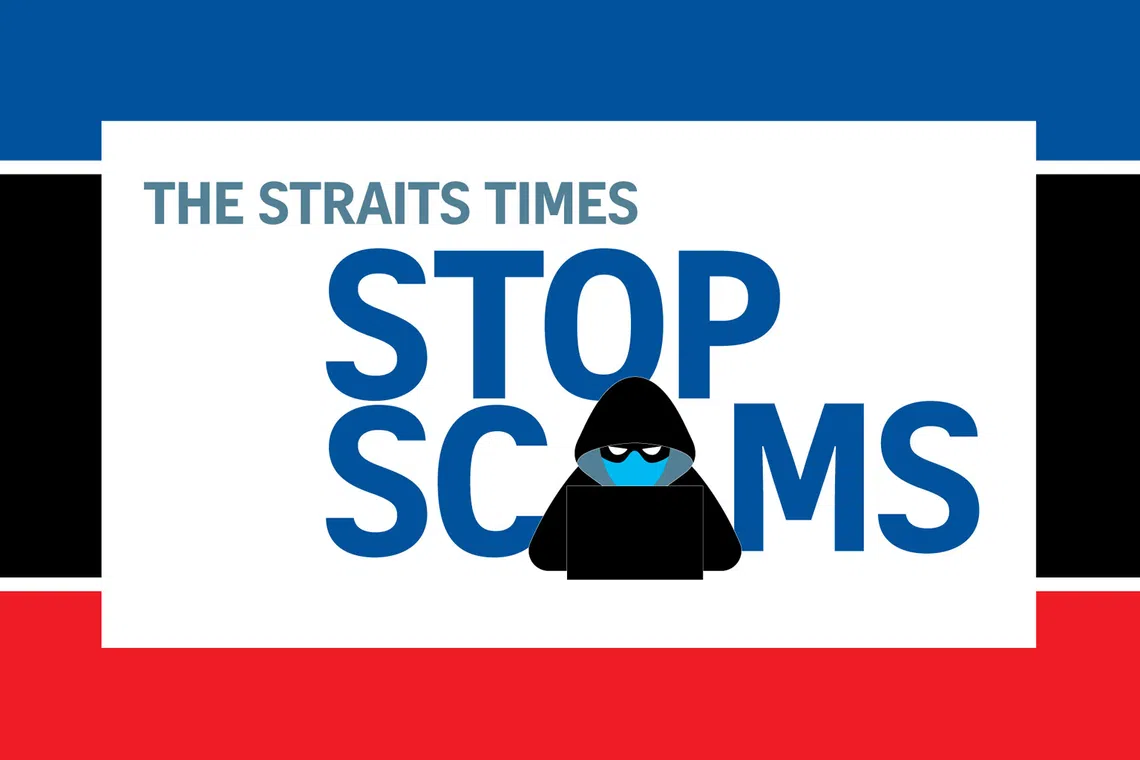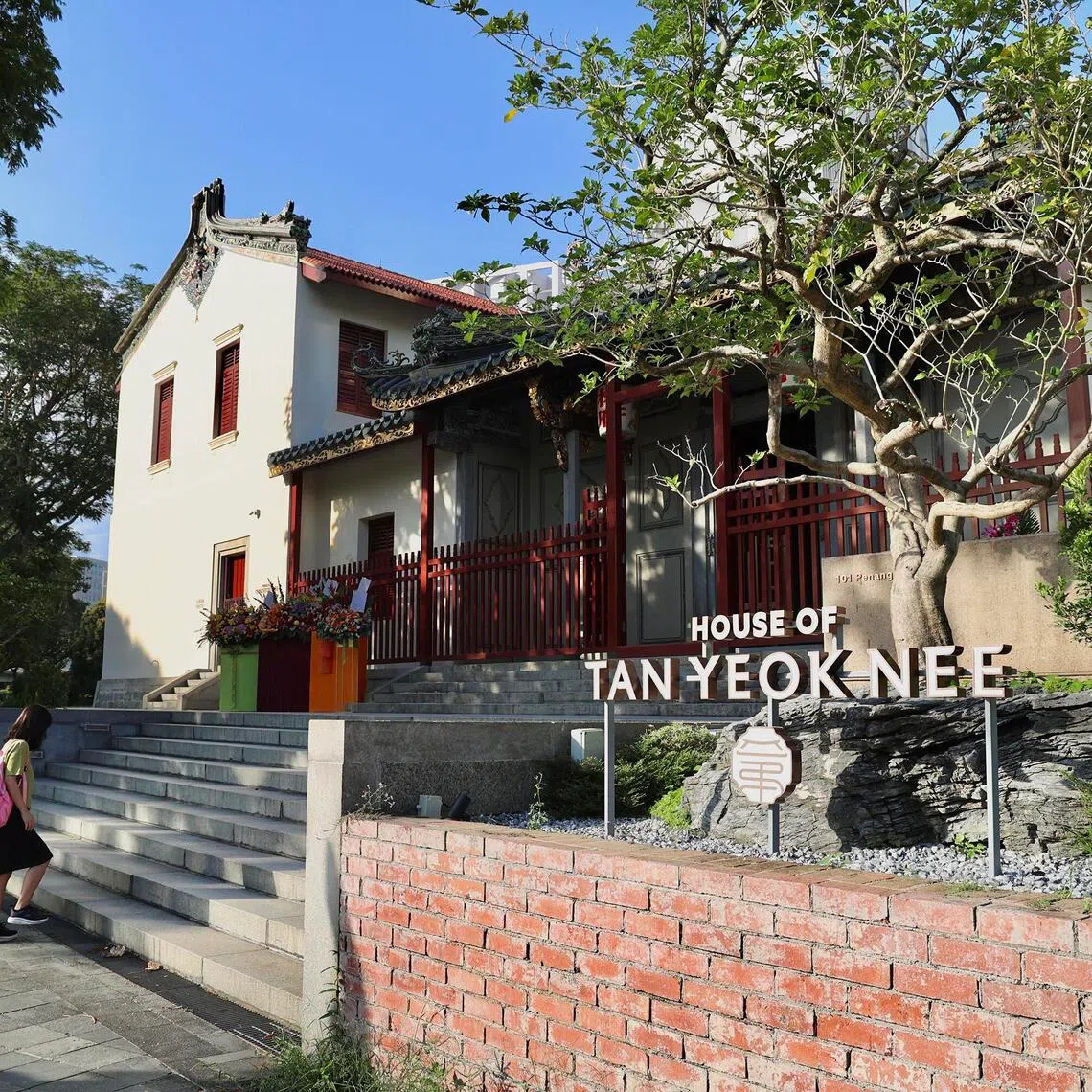https://www.straitstimes.com/singapore/courts-crime/spore-scam-syndicate-avoided-arrest-in-cambodia-after-receiving-tip-off
Singapore scam syndicate avoided arrest in Cambodia after receiving tip-off
Get ST's newsletters delivered to your inbox

The group, led by Singaporean Ng Wei Liang (left), frequented NagaWorld (right), Cambodia's largest hotel and gambling resort.
PHOTOS: SINGAPORE POLICE FORCE, EPA
Follow topic:
- A Singaporean-led scam syndicate, headed by Ng Wei Liang, involving 27 Singaporeans and seven Malaysians, ran a government impersonation scam from Cambodia.
- The group allegedly paid protection money and fled to Myanmar after a tip-off, while simultaneous raids in Singapore led to 15 arrests.
- The gang caused at least $41 million in losses across 438 cases in Singapore, using Telegram for communication and exploiting local accents for impersonation.
AI generated
SINGAPORE – The group of Singaporeans who ran a major scam operation in Cambodia may have received a tip-off as the authorities closed in on the operations in Phnom Penh.
at a house and warehouse was led by Cambodian National Police’s (CNP) Anti-Cyber Crime Department.The Straits Times understands that members of the organised crime group – comprising
27 Singaporeans and seven Malaysians
– escaped the dragnet and left for Myanmar.At least one Malaysian was arrested by the Cambodian authorities when he returned to Phnom Penh.
The Singapore Police Force, which conducted simultaneous raids on Sept 9 at several properties in Singapore, including apartments and hotel rooms, arrested 15 suspects in connection with the same operation.
12 Singaporeans, two Malaysians and a Filipina have been charged
under the Organised Crime Act and denied bail.Some of those arrested had allegedly acted as callers for the syndicate and had just returned from Cambodia.
Top stories
Swipe. Select. Stay informed.
SPF also issued warrants of arrest for the 34 individuals on the run.
The gang became involved in scam operations, primarily government impersonation scams, some time in the middle of 2024.
The group was led allegedly by
, 32. He is one of the suspects on the run.After allegedly recruiting his girlfriend, his brother, and a cousin, Wei Liang started expanding the gang. He recruited at least nine Malaysians, to target victims there as well.

In Singapore, the gang is said to be behind at least 438 cases, which saw victims in Singapore lose at least $41 million.
ST understands that the gang had moved into a large mansion in Phnom Penh, which is owned by a government official, to operate its business. It allegedly paid protection money to stave off the local authorities.
Gang members rented apartments nearby, with many flying in and out of Cambodia for the weekend to help run the operation and gamble in the casinos.
One of their favourite haunts was NagaWorld, the country’s largest hotel and gambling resort.

NagaWorld is Cambodia’s largest hotel and gambling resort.
PHOTO: EPA
As its business grew, the gang tried to recruit more Singaporeans, tapping a firm in the Republic which conducted a recruitment exercise for roles that appeared to be with legitimate businesses.
ST had previously reported on such recruitment exercises which were used by
companies like Singapore-based Changting Network Technology
.The firm had advertised for roles supposedly based in Singapore but were in fact for the Koh Kong Resort, a facility in Cambodia sanctioned by the US for ill-treating trafficked workers at online scam centres.
The resort is also cited by the United Nations Office on Drugs and Crime (UNODC) in a scam-related report.
Ng and his gang communicated on the Telegram platform, which provides secrecy through end-to end encryption with messages that are not synced to the cloud.
They were successful in operating a government impersonation scam on account of their accent, with victims in Singapore believing that they were representatives of SPF or the Monetary Authority of Singapore.
During the raids on Sept 9, the CNP’s Anti-Cyber Crime Department found electronic devices and equipment which may have been used in the scams.
During the joint operation, the authorities seized items including $2.5 million worth of funds from bank accounts and cryptocurrency wallets, and copies of scripts used to commit the offences.
more than $456 million was lost to scams
in the first six months of 2025, with nearly 20,000 cases reported.They included around 1,000 victims who lost more than $100,000 each – up from around 700 such victims in the same period over 2024.
In 79 per cent of the cases, scammers did not gain control of the victims’ accounts but manipulated the victims into transferring money.
Government official impersonation scams – similar to those used by Ng’s group – were among the top five scams in the first half of 2025.
The number of cases almost tripled to 1,762 in the first half of 2025, compared with 589 cases in the same 2024 period.
Such scams led to the second-highest amount loss by victims among all scam types in that period, with $126.5 million lost – an 88 per cent increase from the $67.2 million lost during the same period in 2024.
The raids in Cambodia, coordinated with SPF, were not the only ones involving foreign law enforcement agencies.

Earlier in October, the Cambodian authorities
arrested more than 60 South Korean nationals
for their alleged roles in “pig butchering” scams – so-called for the method of building trust with victims over time before stealing funds.The operation was coordinated with police from South Korea in the wake of reports that many of their nationals were being held captive and forced to work for scam gangs.
The South Koreans were recruited through fraudulent job offers.
On Aug 8, a 22-year-old student, who was recruited under such a false pretext was
after he was forced to work for a scam syndicate.






Comments
Post a Comment